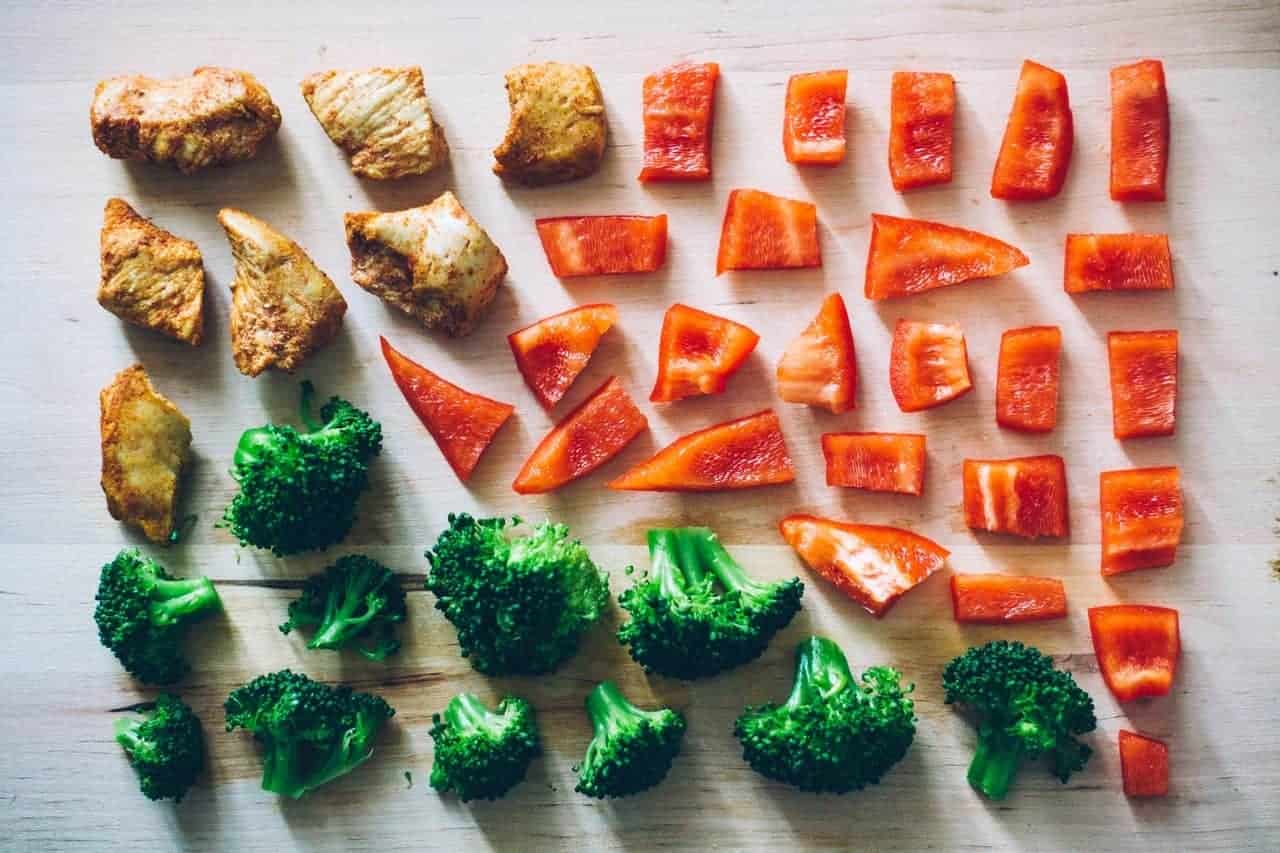Eating properly and with clean ingredients is a great way to provide your body with the nutrients it requires to remain healthy and strong for years to come. Understanding how to implement clean eating tips into your everyday life is a way to truly transform the way you view and consume food for a healthier and more fulfilling future.
1. Get Educated About What Clean Eating Means
Learn more about what clean eating means and why it is important to you before you begin planning your new way of eating. Eating clean does not necessarily require you to eliminate all foods you enjoy. Simply making adjustments and fresh ingredients can drastically improve the overall nutrition of a meal or snack.
2. Become Familiar With the Basics of Cooking
If you want to truly implement a lifestyle of clean eating, get familiar with your kitchen and the basics of cooking. Spend time mastering basic cooking tools while investing in additional equipment and storage containers to keep you on track. Once you enjoy cooking on your own, minimize the temptation to eat out or go off of track of your original dietary goals.
3. Learn How to Read and Interpret Nutritional Labels
Reading and interpreting nutritional labels properly is extremely important, regardless of the type of diet you choose for yourself. Learn the difference between fats, proteins, carbohydrates, and sugars along with how they impact the body. Consider your recommended caloric intake based on your current height, weight, and gender when you shop for ingredients and begin preparing new recipes. The more informed you are regarding nutritional labels, the easier it is to stick to the way of eating you desire.
4. Search for and Save Clean Eating Recipes
Are you feeling less than creative in the kitchen or are you simply at a loss when it comes to recipes that are clean and healthy? Search for and save recipes using online networks such as Pinterest and Facebook. Consider each ingredient used in a recipe and whether or not it is processed before choosing to save it for a future meal plan to try.
5. Clean Eating Begins With Smaller, More Frequent Meals
Eating just one meal a day is not always healthy, especially if your body is insulin resistant or if you have difficulties losing weight and remaining healthy due to a slowed metabolism. Eat smaller meals more frequently with a wide variety of ingredients and foods. Smaller, more frequent meals help to boost the body’s metabolism while providing your brain and body with the nutrients and vitamins necessary for it to thrive throughout the duration of an entire day.
6. Choose a Day to Prep Your Meals
Meal prepping is king when it comes to eating healthier and cleaner. Choose one day out of the week to prep all of your meals for breakfast, lunch, and dinner. If you work in an office setting, meal prepping is a must to avoid the temptation of eating out, ordering in, or indulging in workplace snacks and desserts.
7. Find Joy in Being a Home Cook
The more familiar you become with cooking tools and recipes, the easier it is to find pleasure in cooking for yourself and your family. Find joy in homecooked meals to prevent feeling as if preparing your meal is a chore.
8. Shop Wisely at Grocery Stores for Clean Eating Foods
Shopping the perimeter of a grocery store is one of the most important clean eating tips to keep in mind, especially if you are new to planning meals and remaining self-aware of each meal you prepare and consume.
9. Seek Out and Support Local Farmers Who Promote Clean Ingredients
Support local farmers in your area when shopping for fruits and vegetables. Local farmers often avoid utilizing pesticides and other chemicals, providing you with the cleanest and fresh ingredients possible.
10. Cut Sugar and Excesss Carbohydrates From Your Everyday Diet
Cutting out sugar and excess carbohydrates from your diet is one of the most popular clean eating tips to consider when making positive changes to your current lifestyle.
11. Minimize Your Alcohol Consumption
While it is not necessary to eliminate alcohol from your life entirely while eating clean, minimizing your alcohol consumption is highly recommended. Alcohol is often high in sugars and carbohydrates, which may contribute to the stalling of any weight loss you have in mind.
12. Pack Snacks to Carry With You Anywhere You Go
Always carry snacks on you while you are traveling, commuting, or even while you are out with friends. Taking snacks that are packed with protein with you on the go is a great way to avoid temptation while eating out, going to a bar, or spending time at the house of a friend (especially one who loves to bake and cook).
13. Discover New Ways to Transform Boring Ingredients
Eating clean and healthy does not have to feel dull and boring. Consider the types of foods you enjoy the most and seek alternative recipes that help reduce fat, excess sugar, and excess carbohydrates. Implement vegetables and fresh fruits with your recipe for an added boost of vitamins and minerals that are otherwise not included. If you enjoy meats prepared in any manner, invest in a crock pot, grill, and get to know various cooking methods that work for you using a traditional stove and oven.
14. Avoid Traditional “Diet Foods”
Skip out on purchasing low-fat or fat-free ingredients when shopping for groceries. Oftentimes, diet foods contain excess sugar and processed ingredients that are far from clean and natural for the body. Opt for full fat and whole foods with ingredients you are familiar with instead. Always read nutritional labels when shopping for new foods, especially if you are just getting the hang of understanding clean ingredients and eating.
15. Research Menus Beforehand When Dining Out
While eating clean requires planning ahead and choosing the right ingredients, it does not have to mean you are never allowed to dine out at your favorite restaurants again. Before heading out for brunch or a night out on the town, spend time researching menus of places you plan to visit. Seek out healthy menu options along with sides such as steamed broccoli and other mixed vegetables. When given the choice of soup or a salad, choose the salad if you are unfamiliar with the ingredients used in the soup of the day. Avoid sugary beverages and cocktails as restaurants are more lenient on the number of calories they utilize when preparing food and drinks to serve to customers.
16. Increase Your Water Intake
One of the most important tips to keep in mind when changing and improving your way of eating is to remain hydrated. Increase your daily water intake by keeping a large water bottle or jug near you throughout each day. Avoid substituting water for sugary drinks, excess coffee (especially with sugary cream or milk). If you are not a fan of traditional water, consider zero-calorie (and zero sugar) drink flavoring options. Staying hydrated keeps the body fuller longer while also ensuring your body absorbs all of the nutrients you consume.
17. Seek Foods High in Protein
Did you know that empty calories from solid fats and added sugars contribute to more than 40% of the total caloric intake of children between the ages of 2 and 18 in the United States? With obesity on the rise, nutritional education is essential. Seek out foods that are high in protein such as fish, lean meats, and vegetable dishes to remain fuller longer without the temptation to snack or indulge in less than healthy foods.
18. Add More Greens Into Every Meal
Adding more greens into every meal is not just something that parents and grandparents recommend to the children in their lives. Greens such as kale, spinach, and broccoli are packed with vitamins and nutrients that help to replenish and serve the body. While clean eating is not only about increasing the number of vegetables you consume each day, it is important to make them a priority when planning meals and shopping for groceries.
19. Keep Your Kitchen Stocked as Much as Possible
Always keep your kitchen stocked with fresh fruits, vegetables, meats, spices, and other cooking ingredients at all times. When you walk into your kitchen only to discover it is empty or lacking in what you need, you are much more likely to veer off track of your eating habits. If there is no food available at home, you might even find yourself dining out or ordering in (which is typically less than healthy).
20. Use a Daily Journal or Log to Keep Track of Your Progress
While keeping a daily journal or virtual log is not necessary to improve your eating habits, it is a great tool to utilize for accountability. Keep track of the meals you have created, store your own personal recipes, and create a routine to better stick with your new way of eating.
With the right tips, learn how to implement a clean eating lifestyle that is easy to maintain and enjoyable for you and your entire household. Learning how to choose the right ingredients while prepping meals, getting creative in the kitchen, and trying new and exciting recipes are all ways to ensure you stick to your new way of eating long-term.














 Community
Community

